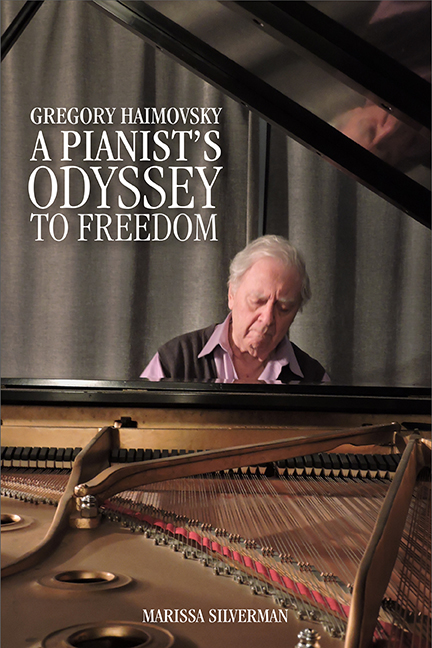Book contents
- Frontmatter
- Dedication
- Contents
- Acknowledgments
- Introduction
- 1 A Pianist Is Born
- 2 A Concert Pianist in Exile
- 3 Spirituality, Love, and Color: Understanding Messiaen’s Music
- 4 From Thaw to Frost: Neonationalism and the Messiaen Premieres in the USSR
- 5 Haimovsky and Grazhdanstvennost’
- Appendix 1 Selected Performances of the Music of Olivier Messiaen by Gregory Haimovsky, 1964–72
- Appendix 2 Selected Writing by Gregory Haimovsky on the Music of Olivier Messiaen
- Notes
- Index
1 - A Pianist Is Born
Published online by Cambridge University Press: 04 June 2021
- Frontmatter
- Dedication
- Contents
- Acknowledgments
- Introduction
- 1 A Pianist Is Born
- 2 A Concert Pianist in Exile
- 3 Spirituality, Love, and Color: Understanding Messiaen’s Music
- 4 From Thaw to Frost: Neonationalism and the Messiaen Premieres in the USSR
- 5 Haimovsky and Grazhdanstvennost’
- Appendix 1 Selected Performances of the Music of Olivier Messiaen by Gregory Haimovsky, 1964–72
- Appendix 2 Selected Writing by Gregory Haimovsky on the Music of Olivier Messiaen
- Notes
- Index
Summary
A magic day—sunshine and frost—
But you, in dreamland still are lost …
Come, open your enchanting eyes
—Aleksandr Pushkin, “Winter Morning”Born February 13, 1926, Gregory Haimovsky lived in Russia until 1972. Thus, he endured and survived decades of his country's most ghastly times. Remarkably, however, his optimism, resilience, and thirst for joy remained intact throughout his life, because Haimovsky cherished and pursued art that meant to uplift—especially that which incorporated the spirit of Pushkin's lyricism as expressed, for example, in “Winter Morning.” Indeed, Pushkin has always been Haimovsky's favorite poet, and his dreamy reveries— and, later, the music of Claude Debussy and Olivier Messiaen—inspired and sustained the long-term growth of Haimovsky's poetic and artistic ambitions and visions.
This chapter discusses specific historical events during the first decades of the Soviet Union. This background material provides the foundation for a discussion of Haimovsky's childhood years and his early development as “a poet through music.”
Introduction
Under the leadership of Vladimir Lenin, The Bolshevik (October) Revolution began in 1917. Lenin died in 1924. During this seven-year period, Russian life was chaotic. The nation experienced mass starvation and disease; a bloody civil war between “Red” Bolsheviks, “White” anti-socialists, and other insurgents; atrocities by the Cheka (the Bolshevik state security force), which arrested, tortured, and executed dissenters; and armed conflicts with Germany.
Despite these horrors, the socialist policies that Lenin established, developed, and refined led eventually to some positive developments. For example, his 1921 “New Economic Policy” (NEP)—a relatively modest form of capitalism—succeeded in resuscitating the weak Russian economy (which had been seriously damaged during the October Revolution) by facilitating particular kinds of international investment. These investments sparked major business initiatives among Russian entrepreneurs and gradually increased food and industrial production.
More broadly, Lenin declared that the NEP was created to substitute “a tax for the requisitioning of food” that would allow “peasants to trade freely in their surplus agricultural produce whatever is left over after the tax is collected,” and the tax would only take “a small share of that produce. The peasants constitute a huge section of our population and of our entire economy, and that is why capitalism must grow out of this soil of free trading.”
- Type
- Chapter
- Information
- Gregory HaimovskyA Pianist's Odyssey to Freedom, pp. 11 - 48Publisher: Boydell & BrewerPrint publication year: 2018



